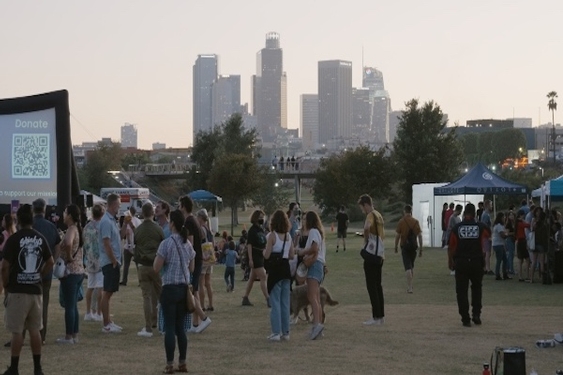Don't click on the ads.
Google has made advertisements look more like organic search results in recent years, so don't click on one by mistake. Check for the word Ad next to the website address before following the link.
Visit the venue's website to purchase a ticket.
The first organic search result will likely be for the venue, but make sure. Sometimes the venue partners with a ticket seller and sends you to its site to purchase. Resellers should alert you that they are not selling primary tickets, so if you see a message like "We are a resale marketplace, not a box office or venue," try again.
Be careful if you see a message saying you will receive your ticket the day before the show.
You should receive your ticket promptly from the primary ticket vendor.
If the show is sold out, purchase from a popular resale website.
Some resellers also sell primary tickets, such as Live Nation or TicketMaster. That is the best place to purchase a resale ticket because they essentially invalidate the original and create a new bar code to be scanned upon entry. This ensures you are the only one in possession of the resale ticket. If you have to buy from a third-party ticket seller, make sure it's a popular one, such as StubHub or SeatGeek. They should have better customer service if something goes wrong.
Remember that tickets are worthless after an event has taken place. If you absolutely must purchase a resale ticket right away you're going to pay a premium for it. If you're willing to wait until the day of the show you'll likely get a better deal but also might not get a ticket at all.
If you get ripped off, there's help.
File a complaint with the Better Business Bureau. Many complaints get resolved there. Also send a note to your state's attorney general.
___
(c)2021 The Philadelphia Inquirer
Visit The Philadelphia Inquirer at www.inquirer.com
Distributed by Tribune Content Agency, LLC.



